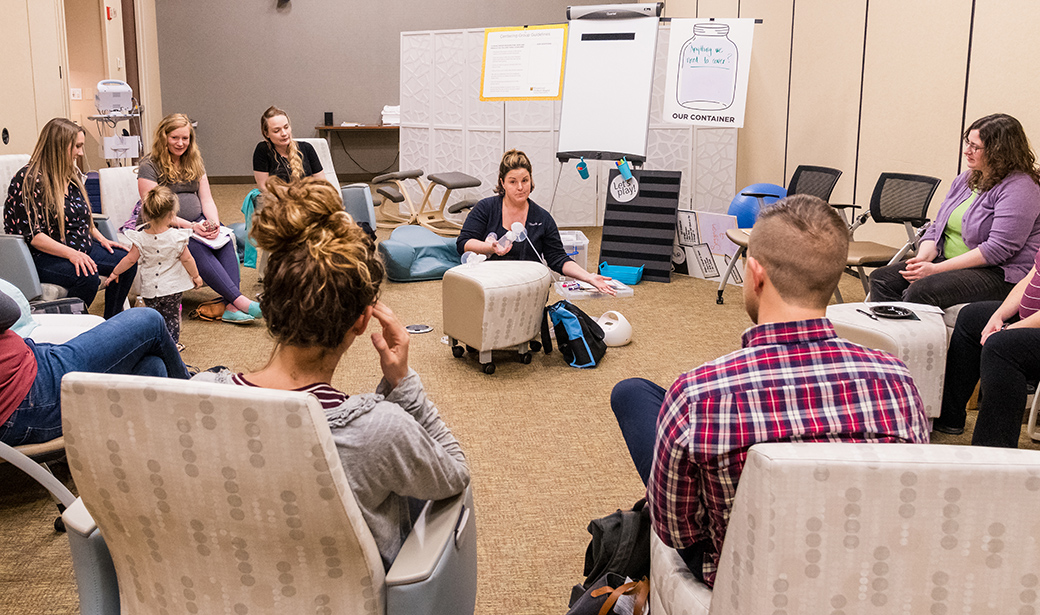Expectant parents now can navigate pregnancy with their peers in MU Health Care’s group prenatal care program.
Group prenatal care combines three important components — medical appointments, education and support — into 10 discussion-based group sessions. Each group includes eight to 12 pregnant women, beginning in their second trimester. Each meeting lasts two hours.
“The first 30 minutes are devoted to making sure all of the babies are doing well,” said Courtney Barnes, MD, an obstetrician at MU Health Care. “Each mom goes behind a privacy screen for a brief examination. During this time, they can ask questions or voice concerns they would rather not share with the group. Then, the remaining 90 minutes of the session are dedicated to education and group discussion.”
Barnes said each discussion begins with a predetermined topic, but the group is welcome to steer the conversation in any direction. The doctor’s role is to facilitate and provide advice.
“The best part about being in a group setting is that people will ask questions you aren’t thinking of,” said Alicia Nettrour, a physical therapist at MU Health Care who completed the program. “You’re getting a lot of information in that two-hour time period, some of which you might not learn during an individual appointment.”
Group prenatal care is evidence- based and research has shown group prenatal care reduces the risk of premature birth and postpartum depression, and increases breastfeeding success. Barnes said these benefits occur because of the bonds that form between attendees.
“Each session felt like the best doctor visit ever with the added bonus of a support group,” Allison Young said. “My husband and I met all these wonderful couples who were going through the same thing at the same time. There were a few sessions where we talked about difficult subjects, and everybody in the group was just so supportive.”
Though group prenatal care might not be for everyone, Barnes said she encourages all healthy pregnant women to try it. She also said future groups will be catered toward women with higher-risk pregnancies.
“Enrolling in group prenatal care doesn’t mean you have to stay in the group the entire time,” she said. “We do encourage people to try two or three sessions because it can take a little time to get comfortable. But you can absolutely switch to a traditional model if you decide group care isn’t for you.”



